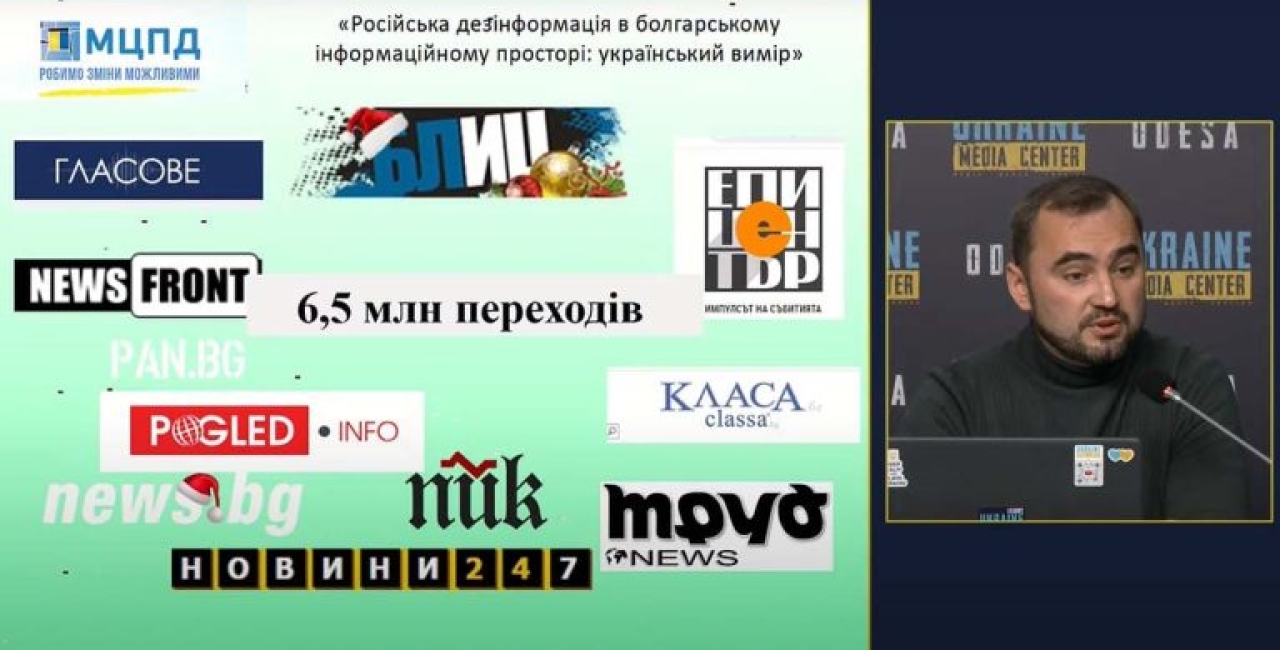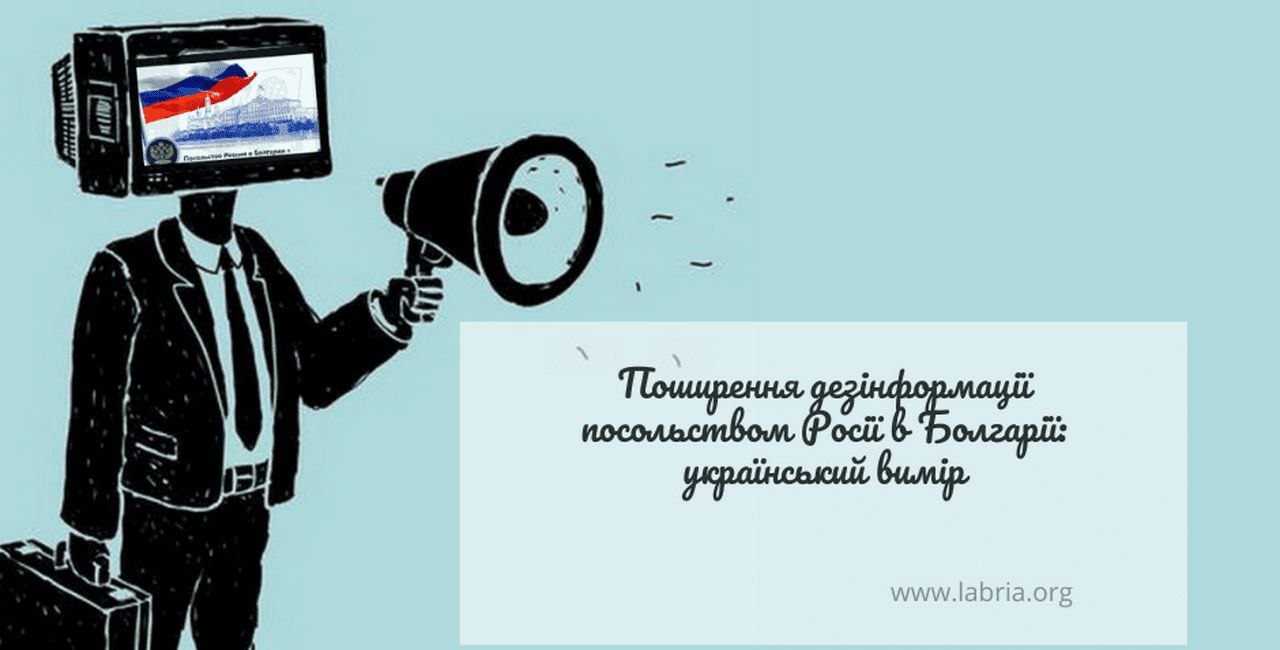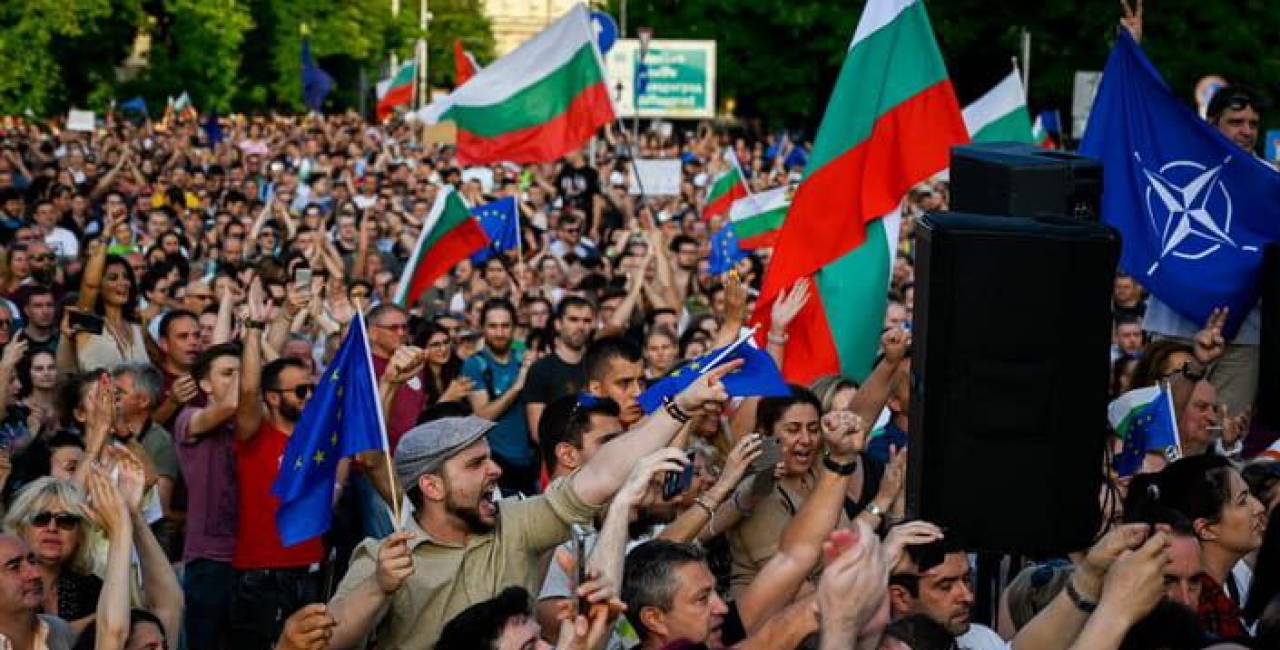
LABRIA experts in partnership with the International Center for Policy Studies conducted an analysis of the involvement of populist political parties in Bulgaria in promoting Russian propaganda in the Bulgarian information field (Ukrainian dimension). The authors of the study: Chairman of the Board of LABRIA, Associate Expert of the International Center for Policy Studies Igor Karpechenko, LABRIA expert Mikhail Panayotov.
The Russian Federation is actively using the tools of information warfare in European countries to provide propaganda support for the unprovoked aggression unleashed against Ukraine. The measures taken to block the work of Russian foreign-language media holdings in certain countries of the European Union have reduced Russia's ability to influence the European population and promote Russian propaganda in the information space of EU countries. At the same time, to solve propaganda tasks, Russia continues to use unofficial ties with populist and opposition parties to relay and inject Russian propaganda into the European information field.
A vivid example of the use of populist politicians in the interests of Russian propaganda is the Republic of Bulgaria, where the political party "Renaissance" has actually become an unofficial "foreign representation" of Russian information operations units and is regularly involved in carrying out tasks to promote Russian narratives and expand the target audience of influence at the expense of the Bulgarian population. An analysis of the activities of the deputy group of the specified political force in the 49th National Assembly of Bulgaria indicates their regular use of their deputy powers and the walls of the Bulgarian parliament to promote Russian information and psychological influence campaigns in the region. In particular, from April to October 2023, more than twenty confirmed facts were established (see the file at the end of the publication) of direct and indirect participation of deputies of the specified political force in Russian information operations against Ukraine through the preparation of draft decisions of the Bulgarian Parliament, sending written (oral) deputy appeals to government representatives, and oral speeches during sessional meetings.
During the specified period, Russian propaganda in the Republic of Bulgaria through the Renaissance party was largely aimed at:
disrupting military-technical cooperation between Ukraine and the Republic of Bulgaria in terms of transferring weapons and military equipment to Ukraine, which are in warehouses in Bulgaria;
blocking Ukrainian agricultural exports via land corridors to countries in Europe and Africa;
forming a negative attitude towards Ukrainian refugees among the population of the Republic of Bulgaria and increasing social tension;
cultivating among the Bulgarian population an image of Ukraine as a state in which there is no democracy, "fascism" flourishes, and the rights of national minorities, in particular representatives of the Bulgarian diaspora, are oppressed in order to justify Russia's unprovoked armed aggression against Ukraine.
As part of the implementation of information tasks to block Ukrainian agricultural exports, the head of the Renaissance party, Kostadin Kostadinov, and Deyan Nikolov, during their speech in the session hall, stated that Ukrainian grain crops were supposedly dangerous and contained radioactive metals, which would lead to poisoning of the population of the Republic of Bulgaria. The draft resolution of the Bulgarian Parliament (49-354-02-158 dated 09/20/2023) prepared by a group of deputies of the Renaissance party on a ban on the import of Ukrainian agricultural products deserves special attention. The explanatory note to the draft resolution emphasizes that due to the supply of depleted uranium ammunition to Ukraine and the alleged use of dangerous toxic substances in the war, Ukrainian products are especially dangerous for European countries. The authors of the draft cite facts that Russia invented and actively disseminated through its own media as an example. In particular, we are talking about a report allegedly from the Polish newspaper "Ricz Pospolita" about the poisoning of Polish law enforcement officers after consuming 110 tons of Ukrainian industrial grains.




